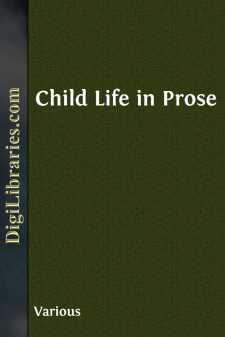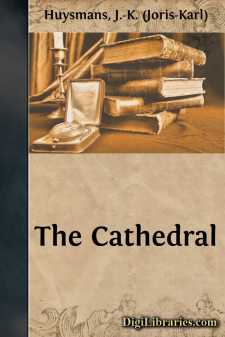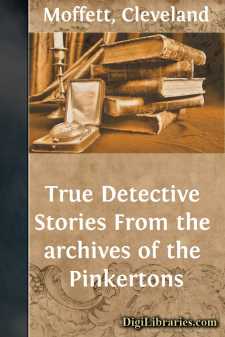Categories
- Antiques & Collectibles 13
- Architecture 36
- Art 48
- Bibles 22
- Biography & Autobiography 813
- Body, Mind & Spirit 142
- Business & Economics 28
- Children's Books 17
- Children's Fiction 14
- Computers 4
- Cooking 94
- Crafts & Hobbies 4
- Drama 346
- Education 46
- Family & Relationships 57
- Fiction 11829
- Games 19
- Gardening 17
- Health & Fitness 34
- History 1377
- House & Home 1
- Humor 147
- Juvenile Fiction 1873
- Juvenile Nonfiction 202
- Language Arts & Disciplines 88
- Law 16
- Literary Collections 686
- Literary Criticism 179
- Mathematics 13
- Medical 41
- Music 40
- Nature 179
- Non-Classifiable 1768
- Performing Arts 7
- Periodicals 1453
- Philosophy 64
- Photography 2
- Poetry 896
- Political Science 203
- Psychology 42
- Reference 154
- Religion 513
- Science 126
- Self-Help 84
- Social Science 81
- Sports & Recreation 34
- Study Aids 3
- Technology & Engineering 59
- Transportation 23
- Travel 463
- True Crime 29
Sort by:
In Belford Regis, as in many of those provincial capitals of the south of England, whose growth and importance have kept pace with the increased affluence and population of the neighbourhood, the principal shops will be found clustered in the close, inconvenient streets of the antique portion of the good town; whilst the more showy and commodious modern buildings are quite unable to compete in point of...
more...
by:
Various
PREFACE. The unexpectedly favorable reception of the poetical compilation entitled "Child Life" has induced its publishers to call for the preparation of a companion volume of prose stories and sketches, gathered, like the former, from the literature of widely separated nationalities and periods. Illness, preoccupation, and the inertia of unelastic years would have deterred me from the...
more...
THOUGHTS ON A REVELATION. Few persons can have observed attentively the various phases of public opinion on religious subjects during the last twenty years or more, without noticing a growing tendency to the accumulation of difficulties on the subject of Revelation. Geology, ethnology, mythical interpretation, critical investigation, and inquiries of other kinds, have raised their several...
more...
by:
May Sinclair
I 1 Barbara wished she would come back. For the last hour Fanny Waddington had kept on passing in and out of the room through the open door into the garden, bringing in tulips, white, pink, and red tulips, for the flowered Lowestoft bowls, hovering over them, caressing them with her delicate butterfly fingers, humming some sort of song to herself. The song mixes itself up with the Stores list Barbara...
more...
At Chartres, as you turn out of the little market-place, which is swept in all weathers by the surly wind from the flats, a mild air as of a cellar, made heavy by a soft, almost smothered scent of oil, puffs in your face on entering the solemn gloom of the sheltering forest. Durtal knew it well, and the delightful moment when he could take breath, still half-stunned by the sudden change from a stinging...
more...
WALT WHITMAN IN EUROPE. With the death and burial of Walt Whitman passes away the most picturesque figure of contemporary literature. It is true that in England the name of the poet is more familiar than his poetry, and that students of literature are more conversant with the nature of his writings than are the mass of general readers; yet the character of the man and the spirit of his compositions...
more...
The Northampton Bank Robbery bout midnight on Tuesday, January 25, 1876, five masked men entered the house of John Whittelsey in Northampton, Massachusetts. Mr. Whittelsey was the cashier of the Northampton National Bank, and was known to have in his possession the keys of the bank building and the combination to the bank vault. The five men entered the house noiselessly, with the aid of false keys,...
more...
by:
Bertram Mitford
Chapter One. The New Boy. “Hi! Blacky! Here—hold hard. D’you hear, Snowball?” The last peremptorily. He thus addressed, paused, turned, and eyed somewhat doubtfully, not without a tinge of apprehension, the group of boys who thus hailed him. “What’s your name?” pursued the latter, “Caesar, Pompey, Snowball—what?” “Or Uncle Tom?” came another suggestion. “I—new boy,” was...
more...
I must have been no more than fifteen or sixteen years old when I first chanced upon Winesburg, Ohio. Gripped by these stories and sketches of Sherwood Anderson's small-town "grotesques," I felt that he was opening for me new depths of experience, touching upon half-buried truths which nothing in my young life had prepared me for. A New York City boy who never saw the crops grow or spent...
more...
by:
Walter Jerrold
CHARLES LAMB THE STORY OF HIS LIFE Charles Lamb's biography should be read at length in his essays and his letters—from them we get to know not only the facts of his life but almost insensibly we get a knowledge of the man himself such as cannot be conveyed in any brief summary. He is as a friend, a loved friend, whom it seems almost sacrilegious to summarize in the compact sentences of a...
more...











